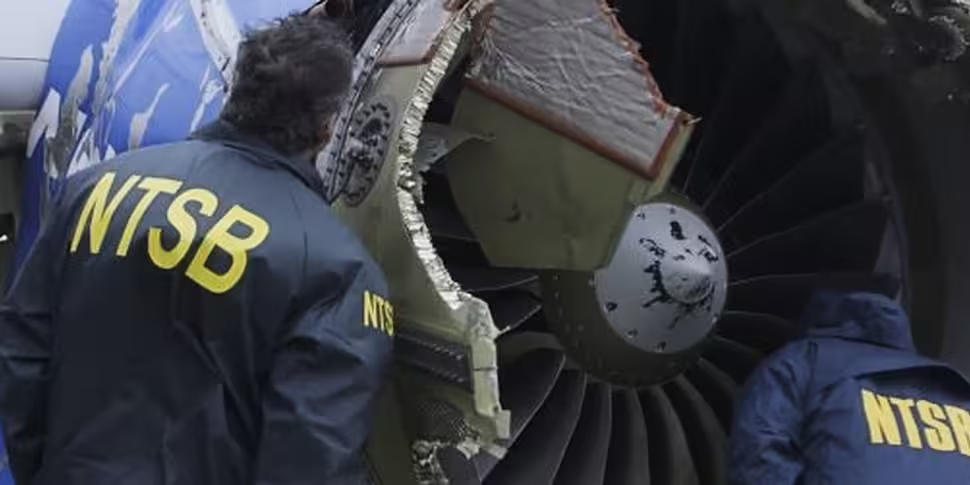Airlines have been ordered to carry out emergency inspections of jet engines similar to the one on a plane in which a woman died after being sucked from the cabin.
Jennifer Riordan, a 43-year-old mother-of-two, was partially sucked through the window next to her on a Boeing 737 after it shattered when a engine fan blade broke loose and caused an explosion at 30,000 feet.
Shrapnel from the engine smashed the window, which caused rapid decompression in the cabin.
Ms Riordan's cause of death was blunt trauma to the head, neck and torso, Philadelphia's medical examiner said.
The Southwest Airlines aircraft, which was flying from New York to Dallas and had 149 passengers on board, was forced to make an emergency landing in Philadelphia on Tuesday.
Image: Facebook/Jennifer Riordan
The US Federal Aviation Administration (FAA) has ordered the inspection of almost 700 Boeing 737 engines across the globe over the next 20 days.
The FAA said: "Fan blade failure due to cracking could result in an engine in-flight shutdown, uncontained release of debris and possible airplane decompression."
The Boeing 737 used on Southwest Airlines Flight 1380 had a fault in one of its CFM56-7B engines.
Ultrasonic tests on fan blades that have performed 30,000 or more total accumulated flight cycles will be carried out.
Engines in 681 aircraft will be checked worldwide.
CFM International, a joint venture between America's GE Aviation and France's Safran Aircraft Engines, said around 150 of the engines have already been examined.
A similar accident on a Southwest flight in August 2016 forced a plane, equipped with the same engine, to make an emergency landing.
There were calls for inspections of the engines at the time, but regulators did not publish a directive.










